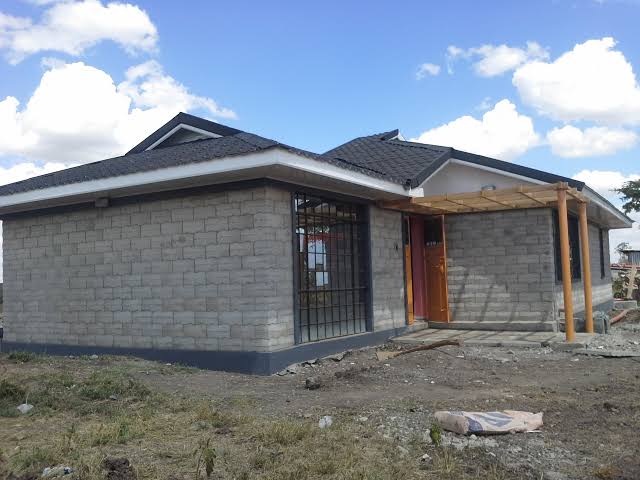Constructing a House in Kenya When building your home, there are certain things you should do and others you shouldn’t do.
Most often though, you are likely to get things mixed up, especially if you are building for the first time. In any case, building your own home is not easy.
The process is painstaking and requires thorough planning. Here are five things you should consider before you can embark on constructing a house in Kenya as was first published in The Standard:
Count the cost
This ought to be the first consideration in home construction. Do you really need a home for you and your family or do you just want to fit in with your peers who are building? How many rooms do you need? What neighbourhood do you want to live in? How much will professional fees amount? What would be the design and size of the house?
The answers to these questions will determine how much you spend on the project. Get it wrong here and whatever follows below will be of little use.
Over 30 million Kenyans applied for US Green Card, Jalang’o claims
Site selection
Kenyans have an affinity for owning a piece of land as the ultimate investment. However, do your homework before committing cash on a parcel of land. Avoid landfills, riparian reserves or areas prone to floods.
Make sure the land is not earmarked for public use.It helps to visit your ideal location and find out any existing or proposed amenities such as a schools, hospitals or shopping areas. A search in the lands registry or county planning office will reveal the real owners or any planned developments within the neighbourhood.
The search will also reveal if a virgin area will be connected to a global sewer line, mains electricity or trunk roads.Do not rely solely on the countless “plot maguta maguta” (smooth land deals) advertisements in the media.
These have disclaimers that absolve such media companies from any liabilities should your initial investment go south. In any case, you are embarking on what might be the biggest project of your life.
Do not bypass the professionals
In a quest to save money, many prospective homeowners bypass the services of professionals such as conveyance lawyers, architects, quantity surveyors or certified electricians.This could be more costly in the long-run, wiping out any perceived savings, especially when authorities catch up with you.
“Do not rely on friends who may have built their homes without much help from professionals,” says Dan Murimi, a homeowner in Nairobi’s Langata estate.
“I bought my parcel of land from a friend without involving a lawyer only to find out that the property had some uncleared bank charges attached to it. I have since been trying to clear with the bank, not to mention the accrued interest over six years.”
Buy materials from reputable sources
It may seem obvious but the cost of materials is the single largest expense in home construction. Some try to save on cash and buy materials in bits and pieces. For example, many homeowners buy sand in wheelbarrows as per the immediate need.
However, this ends up being costly. Again, few new homeowners know that even building blocks come in different qualities, each with a different cost.“All I had seen were building stones lined up on the roadside. I was surprised to learn that the quality differs. This was the case with sand as well.
I thought I could just buy the cheapest truckload only to learn that the grains of sand matter as far as bonding with cement is concerned,” says George Aila, another Langata resident.
To get value for money, it helps to purchase materials yourself rather than have your local artisan buy the items himself as he will likely surcharge you in his final billing. And in this era of counterfeits, engaging a reputable dealer of home finishes will save you a lot of trouble, and money.
Choosing your main ‘fundi’
Most new homeowners find it safe to consult their friends for referrals. They end up with someone they have little connection with or one who may not hold on to their ideals. How then do you get the right master builder? Check out local associations of registered contractors.
This will come in handy should ethical issues arise as you will have a point of reference for possible arbitration. Next, check out previous projects handled by the particular contractor for quality.
Once satisfied, draft a workable contract that binds both of you. Among other things, the contract should set timelines for different project phases.








